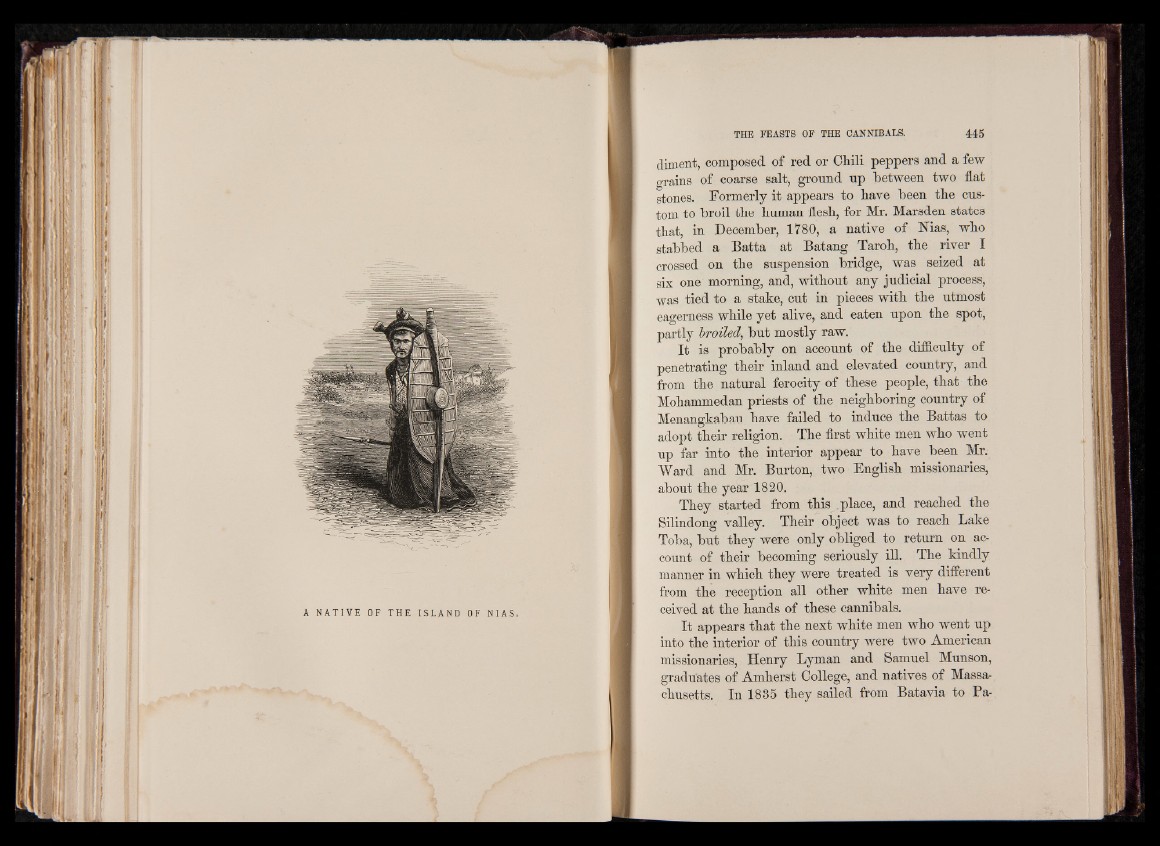
J J I i i l i
diment, composed of red or Chili peppers and a few
grains of coarse salt, ground up between two flat
stones. Formerly it appears to have been the custom
to broil the human flesh, for Mr. Marsden states
that, in December, 1780, a native of Nias, who
stabbed a Batta at Batang Taroh, the river I
crossed on the suspension bridge, was seized at
six one morning, and, without any judicial process,
was tied to a stake, cut in pieces with the utmost
eagerness while yet alive, and eaten upon the spot,
partly broiled, but mostly raw.
It is probably on account of the difficulty of
penetrating their inland and elevated country, and
from the natural ferocity of these people, that the
Mohammedan priests of the neighboring country of
Menangkabau have failed to induce the Battas to
adopt their religion. The first white men who went
up far into the interior appear to have been Mr.
Ward and Mr. Burton, two English missionaries,
about the year 1820.
They started from this place, and reached the
Silindong valley. Their object was to reach Lake
Toba, but they were only obliged to return on account
of their becoming seriously ill. The kindly
manner in which they were treated is very different
from the reception all other white men have received
at the hands of these cannibals.
It appears that the next white men who went up
into the interior of this country were two American
missionaries, Henry Lyman and Samuel Munson,
graduates of Amherst College, and natives of Massachusetts.
In 1835 they sailed from Batavia to Pa